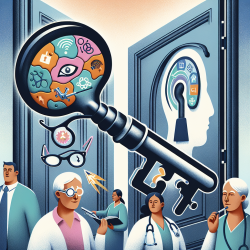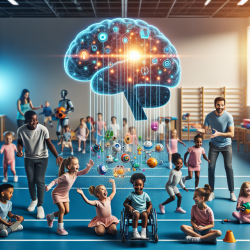Adolescent mental health is a critical issue that impacts not only the well-being of young individuals but also their academic performance and social relationships. Recent research, titled "Adolescent Psychological Assistance Treatment Strategy Integrating Home-School Coordination and Network Information," offers valuable insights into optimizing mental health strategies through enhanced home-school collaboration. This blog will delve into the key findings of this research and provide actionable steps for practitioners to improve their skills and outcomes.
The Importance of Home-School Collaboration
According to the research, integrating home-school coordination with network information can significantly improve adolescent mental health outcomes. Traditional mental health interventions often lack the comprehensive approach needed to address the multifaceted nature of adolescent psychological issues. By combining the educational power of both parents and schools, a more holistic support system can be established.
Key Findings
- Enhanced Communication: The study emphasizes the importance of effective communication between schools and families. Utilizing network information technologies can facilitate real-time updates and ensure that both parties are well-informed.
- Role Clarification: Clearly defining the roles and responsibilities of teachers and parents in the mental health support process is crucial. This helps in creating a structured and effective intervention plan.
- Parental Involvement: Training and educating parents on mental health issues and intervention strategies can significantly improve the effectiveness of the treatment plans.
- Teacher Training: Equipping teachers with the necessary skills and knowledge to handle mental health issues can create a supportive school environment.
Implementing the Research Findings
Practitioners can take several steps to implement these findings effectively:
- Utilize Network Information Technologies: Schools should invest in technologies that facilitate seamless communication between teachers and parents. This could include apps, online portals, and cloud storage systems for real-time data sharing.
- Develop Comprehensive Training Programs: Both teachers and parents should undergo training programs that focus on mental health awareness, intervention strategies, and the use of network information technologies.
- Establish Clear Communication Channels: Schools should set up regular meetings and updates to ensure that parents are kept in the loop regarding their child's mental health status and the intervention strategies being employed.
- Create a Supportive Environment: Schools should have dedicated mental health professionals and counseling centers to provide immediate assistance and long-term support for students.
Encouraging Further Research
While the current research provides a solid foundation, further studies are needed to explore the long-term effectiveness of these strategies. Practitioners are encouraged to participate in ongoing research and contribute their findings to build a more comprehensive understanding of adolescent mental health interventions.
To read the original research paper, please follow this link: Adolescent Psychological Assistance Treatment Strategy Integrating Home-School Coordination and Network Information.










